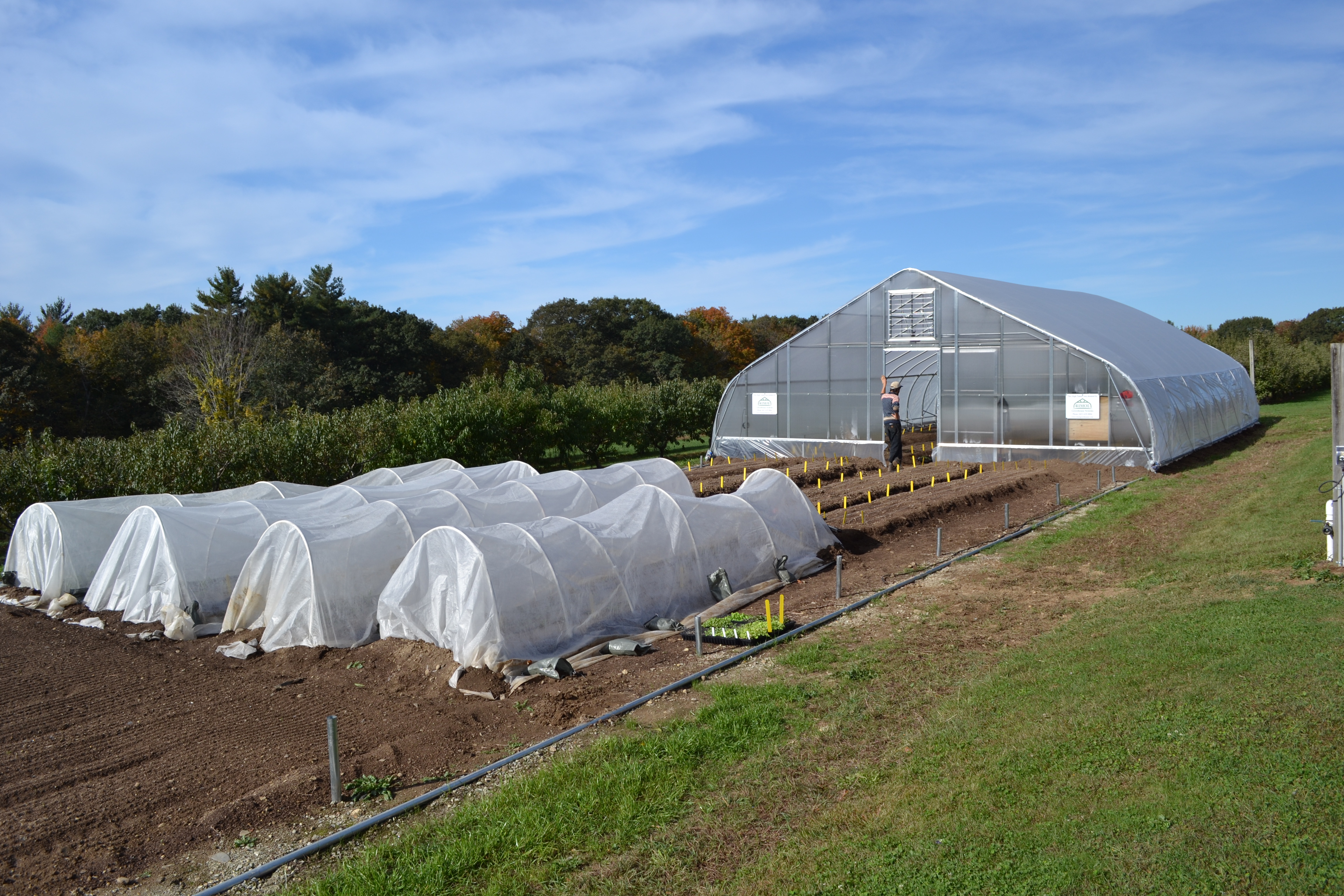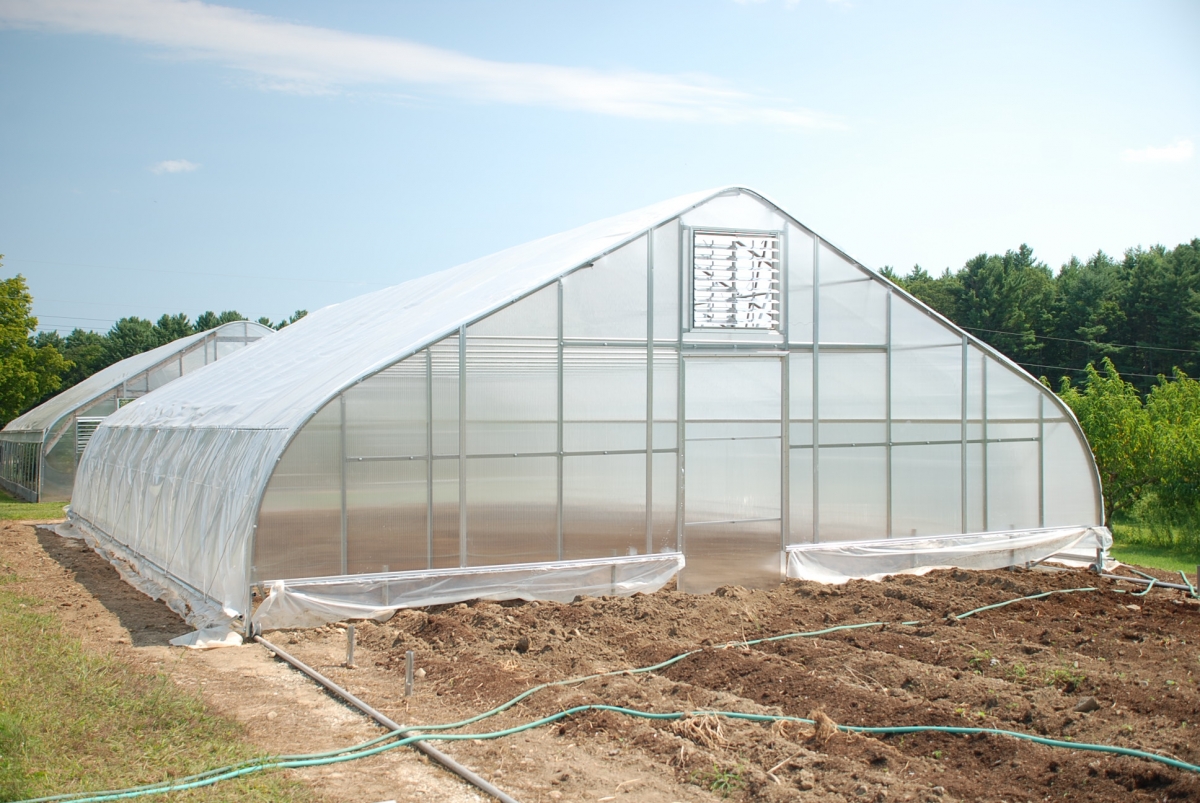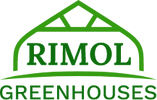Helping Growers Close To Home: Our Partnership with UNH

For any university, having a delegation of students and community members visit from over 3,500 miles away is a big deal.
But to have them come with the express purpose of discussing greenhouse agriculture? That’s something special.
For Prof. Becky Sideman and her team at the New Hampshire Agricultural Experiment Station and UNH Cooperative Extension, this is exactly what happened when a group of farmers and students from Universidad Nacional Toribio Rodríguez de Mendoza in Chachapoyas, Peru stopped by as part of a two-week research and cultural exchange program to see exactly what it is that makes the farms in the Granite State so effective, all year round.
It’s no surprise to us the Peruvian students chose to visit with Sideman and her team at UNH. We’ve been partnered with the UNH team for years, first as colleagues in the industry and then, later, as in-the-ground partners in providing high-quality greenhouse and high tunnel equipment for the community to really experience.
Take just one look at all that Sideman and her team do over at UNH and you’ll see why they make an excellent partner - not just for us, but for anybody looking to improve their knowledge of the industry.
Extending Knowledge To Communities New and Old
The path to hosting a group of four Peruvian students in the heart of New Hampshire was never a particularly direct one - but Sideman has proven time and again her passion for extending knowledge to the community, and this felt like a natural fit.
Ask Sideman to explain her work at UNH and she’ll likely break it down into three distinct areas:
- Teaching undergraduate students in sustainable agricultural research, with a particular focus on vegetable and berry production
- Working closely with community extension members - the majority of their learners - to add to the collective knowledge of the local growing community, and
- Interacting directly with growers and vegetable producers throughout the northeast to identify key industry problems and find tenable solutions.
“There’s a real research and extension need among growers these days, and factors like season extension can play a large role in that learning process,” said Sideman, reflecting on her team’s extension work.
It’s that need for community engagement, as well as a recognition of the importance of continuing education, that drives UNH’s extensive community extension program to welcome in growers from all around the Granite State to learn about new and advancing growing techniques with hands-on experience.
This is also what drove Sideman, along with Iago Hale and Andrew Ogden from the College of Life Sciences and Agriculture at UNH, to begin participating in partnerships with educational institutions in Peru, including Universidad Nacional Toribio Rodríguez de Mendoza. The UNH team applied for and won an Innovation Fund Grant from 100,000 Strong in the Americas in late 2017, and the Peruvian students were on their way to New Hampshire just a few months later.
The result: a rewarding visit filled with mutual learning, forward-thinking, and shared discussion on the future of small scale agriculture across the entire American continent. In Peru, for example, the climate conditions are not all that dissimilar from the conditions up in New Hampshire: cool, temperate environment year round up in the mountains, with summer heat and winter cold making it more difficult to keep warm-season crops coming up reliably year after year.
By analyzing how Sideman and her lab are approaching these common problems, the Peruvian students gleaned useful information on how it improve their own processes - while teaching the UNH team a bit about the challenges faced by growers outside the national boundaries.
But more importantly, it reinforced to Sideman and her UNH team the importance of giving growers the chance to get on-the-ground experience - something they’ve seen in their extensive community extension work right in their own area.
A Real Need For Hands-On Experience
When it comes to passing along the best possible knowledge to the growers who need it most, the UNH team turns toward their community extension offerings - and having physical structures on-site to work with has made a major difference.
“We have commercial growers, extension educators, growers, and gardeners who are not usually exposed to new growing technology coming by to learn,” said Sideman. “It’s really, really valuable to have different kinds of structures here, on-site, to show to growers, compare and contrast with other options, and to show what works and why.”
Often, the extension members and local growers stopping by the lab at UNH are already growing in high tunnels or greenhouses, but may not be fully exposed to the wide array of possibilities offered by these growing spaces.
“If you present [a grower] with just one way to do something, they might think that’s the ‘one way’ it has to happen,” said Sideman. “When growers come here and see a wider, more complete array of possibilities… they walk away with a better idea of what they’re looking for, and why it might work best for them.”
One specific example that has resonated with visiting growers: irrigation systems. In one high tunnel, the UNH team has installed a standard drip irrigation system; in the other, they’ve installed an overhead micro sprinkler irrigation system, which is also capable of drip irrigation.
Seeing how each has worked in comparison to one another, especially when paired with research-level record keeping of data and changes over time, has helped open the eyes of many growers and allowed them to make a better choice for their own grow operation.
For many growers, other advancing greenhouse and high tunnel technologies have also generated quite a bit of excitement over the years - with solar-powered energy systems and moveable tunnels piquing the most interest overall. For that, Sideman and her UNH team knew they needed to reach out to an expert commercial partner in the industry, and Rimol was more than happy to partner up.

A Partnership a Long Time In The Making
At this point, Rimol Greenhouse and the UNH-Sideman team have been working together for so long that pinpointing an exact start date to our relationship is, frankly, challenging.
But we do know it all started back in late 2004 or 2005 - Sideman’s first year or two on the job at UNH, when she and her team were starting to fully realize the potential of high tunnels for growers in the area. She was following in the footsteps of her predecessor, Otho Wells, whose array of research high tunnels at UNH paved the way for farmers throughout the region to use these structures.
She added the first larger tunnel of her own in 2006, but their first high tunnel went up in 2006 - but that wasn’t quite enough to fit all of their aspirations, and so Sideman got in touch with Rimol.
Our own Mike Marett had been discussing high tunnel practices and different options with researchers like Sideman for years, and so the prospect of partnering seemed like a natural fit.
We saw her and her team’s interest in features like moveable high tunnels with solar power, automated roll-up sides, and different construction systems - and so we donated a fully-outfitted high tunnel directly to Sideman’s team, creating the perfect mobile, covered space for their most inventive research projects. The results, and everything they have accomplished in that high tunnel since, have been nothing less than amazing.
Take, for instance, the New England Fruit & Vegetable Conference - a now widely-renowned gathering of fruit and vegetable growers, centered in nearby Manchester, NH. Successful from the very beginning, this conference has grown into a multi-day annual event, with plenty of chances for community and extension members to learn hands-on from researchers, growers, and industry leaders.
We should know - our own Mike Marett has previously presented at the NE Fruit & Veg Conference, offering an in-depth, hands-on guide to our moveable greenhouse system, solar power options, and other advancing technologies for growers. We also frequently speak at one-off seminars and conferences for high tunnel extension growers, part of our continuing partnership with the research team at UNH.
This exciting crop-focused event is complemented by the newly-initiated High Tunnel Production Conference at UNH, which just marked its second year in early December. This was another great opportunity for extension growers to get a hands-on look at greenhouse and high-tunnel management, with an eye specifically on season extension and year-round growing in the northeast. Expanded from one day to two days for this second annual gathering, the High Tunnel Production Conference has growers excited about the chance to focus specifically on high tunnels opposite NE Fruit & Veg conference.
“Mike [Marett] was super supportive of the High Tunnel Production Conference, and even had a trade show booth and donated the door prize, which producers really appreciated,” reflected Sideman. “We’d love to have this conference become a larger, more self-sustaining thing - and having industry partners like Rimol involved is going to be important in making that successful.”
For us, it’s all about having that chance to really interact with growers, with other producers, and with researchers. We recognize the value in bringing the best and latest research to growers on the ground - because it’s a win-win for all involved, and producers love it for the same reason.
Looking Forward To Growing Further
We’re New Hampshire natives ourselves - our headquarters has been based in Hooksett, NH since the beginning. That’s we’re so proud to call the amazing researchers and staff over at nearby UNH true partners - champions for advancing New Hampshire-specific techniques for growing, environmental conditions, and other advances.
Whether it’s watching the results of their multi-year research projects become finalized or jumping in ourselves to help with a workshop or information session, we at Rimol are always happy to help. Regardless of what comes next, we’re excited to see Sideman and her team keep on bringing the knowledge to the growers who need it most - and we’ll be there to assist in any way we can.
Together, We Grow!
Shop
GREENHOUSES
Rimol Greenhouses are designed and manufactured to be, simply put the most dependable greenhouse structures around.
Browse Products